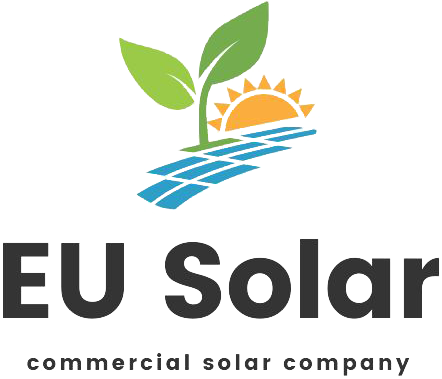In today’s interconnected solar energy landscape, globally aware managers drive international market success through distinctive competencies that transcend borders. Understanding cultural influences in solar markets forms the cornerstone of effective cross-border operations, enabling leaders to navigate complex business environments with precision and insight. These managers distinguish themselves through their ability to synthesize local market intelligence, adapt operational strategies to regional contexts, and build resilient international partnerships while maintaining consistent global standards. Their mastery of cultural intelligence, combined with deep industry expertise, positions them to capitalize on emerging opportunities in diverse solar markets while mitigating risks inherent in global expansion. This strategic awareness encompasses not only market dynamics and technological innovations but also regulatory frameworks, sustainability practices, and stakeholder expectations across different regions, making them invaluable assets in driving sustainable growth in the international solar sector.

Cultural Intelligence in Solar Market Development
Understanding Local Decision-Making Patterns
Understanding local decision-making patterns across different cultures is crucial for success in the global solar energy market. In Western markets, decisions often follow a linear process with clear hierarchies and rapid timelines. However, Asian markets typically embrace a more consensus-driven approach, where relationship-building and group consultation are paramount before finalizing energy investments.
For instance, Japanese businesses commonly practice “nemawashi,” a process of informal consensus-building before formal meetings. This contrasts sharply with the direct, transaction-focused approach prevalent in North American markets. In Middle Eastern countries, business decisions frequently involve multiple stakeholders and may require several meetings to establish trust before discussing technical specifications or pricing.
A globally aware manager recognizes these cultural nuances and adapts their approach accordingly. When presenting solar solutions in collective decision-making cultures, successful managers focus on building relationships with all stakeholders rather than pushing for immediate decisions. They understand that in some regions, rushing to close deals can be counterproductive and may damage long-term business prospects.
By respecting and working within local decision-making frameworks, managers can better position their solar energy solutions and create lasting partnerships across diverse markets.
Communication Styles Across Markets
A globally aware manager recognizes that communication styles vary significantly across different markets and cultures. In high-context cultures like Japan and South Korea, indirect communication and reading between the lines is crucial, while low-context cultures such as the United States and Germany prefer direct, explicit communication. Successful managers adapt their presentation styles accordingly, using more relationship-building elements in Asian markets while focusing on data and efficiency in Western contexts.
In the solar energy sector, this might mean adjusting project proposals and negotiations to match local expectations. For instance, decision-making processes in Middle Eastern markets often involve multiple stakeholders and require patience, while European markets typically follow more structured, linear approaches. Written communication also requires careful consideration, with some markets preferring formal documentation and others placing greater value on verbal agreements and face-to-face meetings.
Effective global managers also master the art of non-verbal communication, understanding that gestures, personal space, and even meeting etiquette can significantly impact business relationships. They invest in cultural training for their teams and utilize local expertise to ensure communication strategies align with regional preferences and customs.
Regional Market Adaptation Strategies
Product Customization for Local Needs
A globally aware manager understands that solar solutions cannot follow a one-size-fits-all approach across different markets. Success in emerging solar markets requires thoughtful customization that considers local cultural preferences, architectural styles, and specific energy needs.
In Japan, for example, successful solar implementations often emphasize space-efficient designs and aesthetic integration with traditional architecture. Middle Eastern markets require solutions that can withstand extreme temperatures and sand exposure, while incorporating features that align with Islamic architectural principles.
Effective product customization involves:
• Modifying system aesthetics to match regional architectural preferences
• Adapting installation methods to local building codes and construction practices
• Adjusting product specifications for climate-specific challenges
• Incorporating local safety standards and certification requirements
• Providing documentation and support materials in local languages
Case studies show that companies who invest in localization achieve 60% higher adoption rates compared to those offering standardized solutions. For instance, a European solar manufacturer increased market share by 40% in Southeast Asia after developing specialized mounting systems for tropical roofing materials.
Successful managers also consider local financing preferences, warranty expectations, and after-sales service requirements when customizing their product offerings. This comprehensive approach to customization helps build trust and long-term relationships with local stakeholders while ensuring optimal product performance in diverse environments.

Pricing Structures and Cultural Values
A globally aware manager recognizes that pricing strategies must be carefully calibrated to reflect local economic conditions and cultural sensitivities. Understanding these nuances is crucial when implementing solar market financing strategies across different regions. In many Asian markets, for instance, negotiation is deeply embedded in business culture, requiring flexible pricing models that accommodate this practice while maintaining profitability.
Successful global managers develop tiered pricing structures that consider local purchasing power, competitive landscapes, and cultural perceptions of value. They understand that pricing isn’t merely about numbers; it’s about aligning with cultural expectations and social norms. For example, in some markets, premium pricing signals quality and reliability, while in others, value-based pricing resonates more effectively with consumers.
Additionally, payment terms and financing options must reflect local financial customs. While extended payment plans might be standard in Western markets, cash transactions could be preferred in certain regions. Cultural attitudes toward debt, interest, and financial relationships significantly influence how pricing structures should be designed and communicated.
Managers must also consider how pricing decisions impact relationships with local partners and stakeholders. This includes understanding cultural perspectives on profit margins, discount structures, and commission systems. Success often comes from finding the balance between global standardization and local adaptation in pricing strategies.

Building Cross-Cultural Partnerships
Local Partnership Development
A globally aware manager recognizes that successful international expansion hinges on developing strong local partnerships. These partnerships should be built on mutual understanding, shared objectives, and clear communication channels. Establishing global supply chain partnerships requires careful consideration of cultural nuances, local business practices, and market-specific requirements.
To develop effective local partnerships, managers should focus on several key strategies: conducting thorough due diligence on potential partners, establishing clear governance structures, and creating detailed partnership agreements that outline roles, responsibilities, and dispute resolution mechanisms. Regular face-to-face meetings, cultural sensitivity training for team members, and joint planning sessions help build trust and maintain strong relationships.
Successful partnerships also require ongoing investment in relationship management, including regular performance reviews, shared goal-setting exercises, and collaborative problem-solving approaches. Managers should establish metrics to measure partnership effectiveness and implement feedback mechanisms to address concerns promptly. This systematic approach ensures sustainable, mutually beneficial relationships that support long-term business growth and market penetration.
Trust-Building Across Cultures
Building trust across different cultures requires a nuanced understanding of local business practices and social norms. Successful globally aware managers recognize that trust-building mechanisms vary significantly between regions. In Asian markets, for example, relationship development often precedes business transactions, with an emphasis on long-term partnerships over quick deals.
Effective trust-building strategies include demonstrating respect for local customs, maintaining consistent communication patterns, and showing genuine interest in the host culture’s values. Managers should invest time in face-to-face meetings when possible, as many cultures prioritize personal connections over digital interactions.
In the solar energy sector, trust-building often involves transparent sharing of technical specifications, performance data, and implementation timelines. Managers should adapt their presentation style to match local expectations – while some cultures prefer detailed technical discussions, others value broader strategic conversations.
Cultural sensitivity in decision-making processes is equally crucial. While Western business cultures might emphasize quick decisions, other regions may require consensus-building and multiple stakeholder consultations. Understanding and respecting these differences helps establish credibility and fosters lasting business relationships.
Regulatory Navigation and Cultural Context
A globally aware manager recognizes that regulatory compliance and business practices are deeply intertwined with cultural contexts across different markets. In the solar energy sector, this understanding becomes particularly crucial as regulations, incentives, and business norms vary significantly between regions and countries.
Successful managers develop a comprehensive understanding of how cultural values influence local business regulations. For instance, in some Asian markets, relationship-building and hierarchical respect may be prerequisites for navigating regulatory processes, while Western markets might emphasize transparent documentation and standardized procedures.
Cultural awareness also impacts how managers approach compliance strategies. In certain regions, verbal agreements and personal relationships carry significant weight in business transactions, while others strictly adhere to written contracts and formal documentation. Understanding these nuances helps managers develop appropriate compliance frameworks that respect both local cultural norms and international standards.
Environmental regulations and sustainability requirements often reflect cultural attitudes toward nature and resource management. Japanese companies, for example, often integrate environmental stewardship into their corporate culture, influencing how they interpret and exceed regulatory requirements. Similarly, European markets typically demand stricter environmental compliance due to cultural emphasis on sustainability.
Effective globally aware managers also recognize the importance of local partnerships in regulatory navigation. These partnerships provide invaluable insights into cultural nuances that affect regulatory interpretation and enforcement. They help bridge the gap between written regulations and their practical implementation within specific cultural contexts.
To maintain regulatory compliance while respecting cultural norms, successful managers:
– Develop cultural intelligence training programs for their teams
– Establish local advisory boards familiar with regional regulatory landscapes
– Create flexible compliance frameworks that accommodate cultural variations
– Invest in relationship-building with local regulatory authorities
– Maintain open communication channels with stakeholders across different cultural contexts
This balanced approach ensures both regulatory compliance and cultural sensitivity, leading to sustainable business operations in diverse international markets.
A globally aware manager in today’s solar energy landscape must embody a unique combination of cultural intelligence, market adaptability, and strategic vision. Success in the international solar market requires more than technical expertise; it demands a comprehensive understanding of diverse business environments and cultural nuances.
To excel in global solar markets, managers should focus on developing cross-cultural communication skills through regular interaction with international partners and continuous learning about different business practices. Building a strong network of local partners and maintaining transparent relationships with stakeholders across different regions is essential for sustainable growth.
Key action steps for success include conducting thorough market research before entering new territories, establishing robust compliance frameworks that address various regulatory requirements, and implementing flexible business strategies that can adapt to regional preferences and needs. Managers should invest in regular training programs for their teams to enhance cultural sensitivity and maintain updated knowledge of international solar industry trends.
The path to becoming an effective global manager in the solar sector requires ongoing commitment to professional development, openness to different perspectives, and the ability to balance standardization with localization. By maintaining awareness of global market dynamics while respecting local contexts, managers can successfully navigate the complexities of international solar energy markets and drive sustainable business growth.
Remember that success in global solar markets is an iterative process that requires patience, adaptability, and continuous learning. Focus on building lasting relationships, understanding local market dynamics, and maintaining flexibility in approach while staying true to core business objectives.

